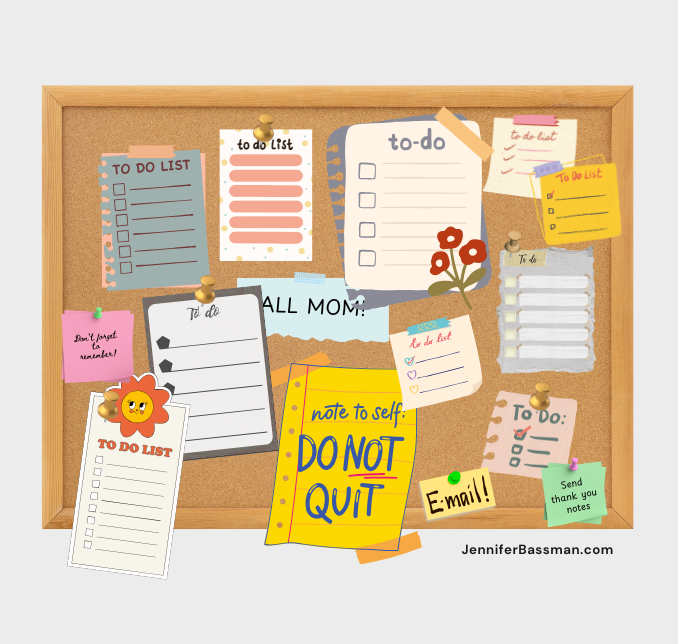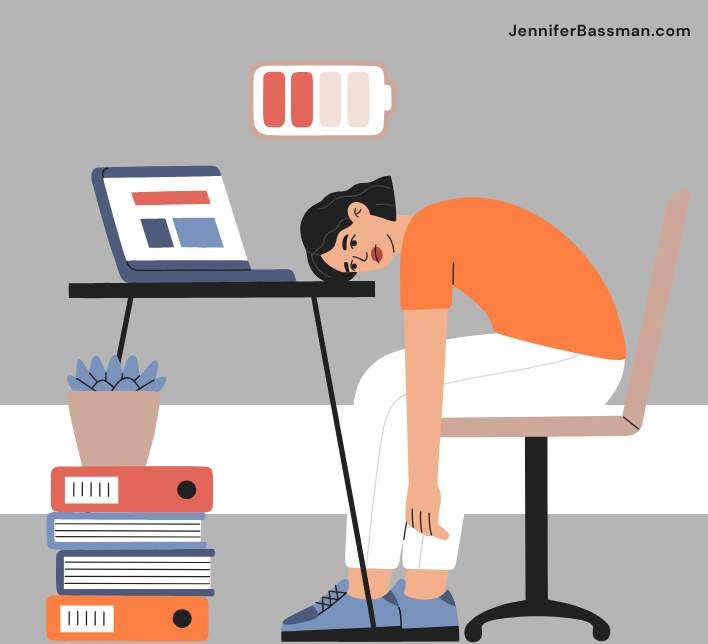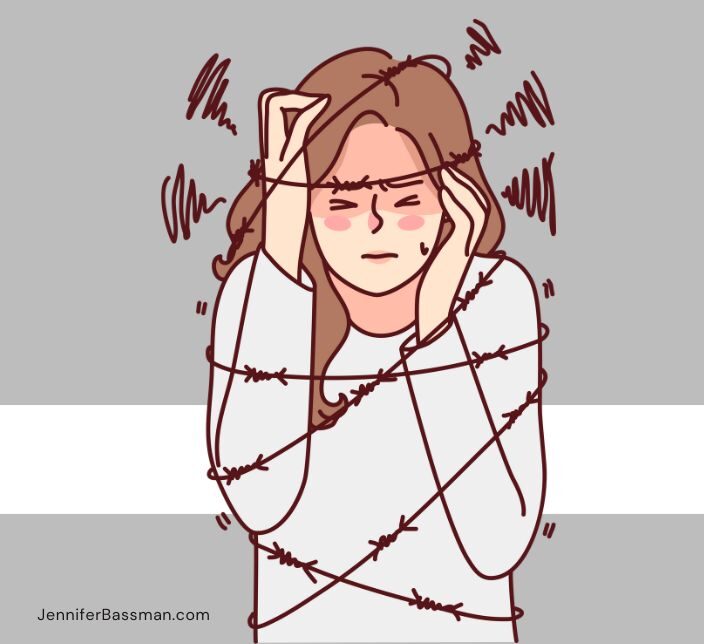Do you know why you worry so much?
The cost of worrying is so appealing – the tension, lack of sleep, irritability, or difficulty focusing are so much “fun.” (Said no one ever.)
So why do you worry so much? Why do you allow yourself to ruminate about something you have no control over? Or, punish yourself with “I woulda,” “I coulda,” or “I shoulda” thoughts?
Why, Jennifer? Why? Why? Why?
While I’d love to give you my standard smart-ass answer that “you’re crazy,” that’s not the case. Not even a little bit.
It is uncertainty that makes you worry so much and you want to do something to make sure it turns out well. Even after you have done all you can do to prevent a negative outcome, you can’t seem to eliminate the possibility that something could go wrong. You replace your lack of control with: worrying.
Uncertainty is hard to live with, even for the most adaptable among us. In order to cope with it, you start turning “what if” scenarios over in our head and try to imagine every possible outcome. This worrying is rewarding or strengthening the worrying behavior like it is accomplishing something. Each time we worry and nothing bad happens, our mind connects worrying to preventing harm.
What Is The Difference Between Worry And Guilt
Guilt is an emotion that looks to the past, imposing self-blame for perceived disappointments. While worrying looks ahead, considering threat and disaster.
Guilt and worry are called “useless emotions” by many in the field of psychology. They serve no constructive purpose. None. Zip. Zilch. Nada. (Sorry!)
If you need another way to think about it, guilt is pointless because you can’t change the past and ruminating or dwelling on the past continues to reinforce the negative and make feelings of self-blame even worse. Worrying is pointless because it does nothing to prepare you for the threats or difficulties you might face.
Five Reasons You Keep Worrying So Much:
- If you worry, you’ll never have a bad surprise: This is your attempt to anticipate disappointment, so you don’t have to feel so blindsided about bad news or a bad outcome. BUT, how much are you suffering by fearing the future?
- It’s safer if you worry: You believe the act of worrying somehow lowers the likelihood of a dreaded outcome. (In the spirit of full transparency, I do this… a lot.) However, your worrying is about as impactful as thinking washing your car causes it to rain.
- You show you care by worrying. You know that saying “I only worry because I care”? Does it mean you don’t care if you don’t worry? You need to distinguish between caring about a situation – including doing everything you can for a positive outcome – and worrying needlessly about it. Have you ever asked someone whether they want you to worry, or if there is another way you can show you care?
- Worrying motivates you. Some of you feel that if you stop worrying, you’ll become unproductive. There is a difference between unproductive worry and productive concern/problem-solving.
- Worrying helps you solve problems. You may think worrying helps you solve problems, but it actually interferes with problem-solving. It’s the difference between actually taking care of a problem versus sitting idle just worrying about the what-ifs.
A little bit of worry is good, it’s when it takes over your ability to act on something, solve a problem, or gets in the way of productivity that you know your worry has taken a turn for the unhealthy path.
How Do You Stop Worrying So Much?
You will never be able to completely stop worrying, but you can do things to lessen the blow. Also, consider that worrying is a habit and it takes some time and practice to stop.
- Calm your nervous system: When you are constantly worried or on edge, your nervous system is on high alert. Your system is consistently sending out “mayday! Mayday!” signals. The mental tension that worrying causes translates into physical tension, which can make us feel like we really should worry because we’re feeling so physically agitated.
You can calm your nervous system through meditation, deep breathing, exercise, or listening to a podcast that encourages calmer thinking.
- Notice when you’re worrying and any beliefs that reinforce worry: You may not always be aware of the stress you are feeling or how it is connected to what you are thinking about. If you can, try to track your worries or how they may have started. That awareness is key because it determines how you will respond.
- Embrace uncertainty: We can’t predict the future, guarantee outcomes, or control how other people will respond to us. Something I discuss a lot when it comes to boundaries, is that you have to get comfortable with the fact that you have no control over how other people think, feel, or respond. Similarly, with worry, you need to get comfortable with flexibility and uncertainty.
- Live in the present: This is one of the most effective things you can do to control the amount of worrying you do. Stay present. When you stay present, you can’t be consumed by the past or feel threatened by the uncertainty of the future.
- Face your fears: Worry is intended to protect us from our fears, yet it leads us to dwell on things that will never happen. If you can start asking yourself questions that allow you to see the fear is either irrational or not possible, it will help you talk yourself out of worrying.
So, if you are a worry wart, it’s time to consider how worrying gets in the way of your productivity and rational thought. Think of it this way: worry is like a rocking chair. It gives you something to do, but it never gets you anywhere.






